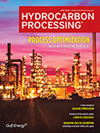Olefins
Borouge initiates feasibility study for 1.6-MMtpy polyolefins complex in China
Borouge announced plans to develop a 1.6-MMtpy specialty polyolefins complex in China, supporting the company's ambitions to reinforce its market position in Asia.
Neste, Mitsubishi Corporation agree on strategic partnership to develop supply chains for renewable chemicals and plastics
Neste and Mitsubishi Corporation (“MC”) have agreed to establish a strategic partnership focusing on developing value chains for renewable chemicals and plastics for and with Japanese brands. The partners are targeting brands in industries such as food and beverage, apparel, and consumer electronics.
LOTTE Chemical develops high-intensity, flame-resistant PP products for electric vehicle batteries
LOTTE Chemical has developed high-intensity, flame-resistant polypropylene products that can delay thermal runaway in electric vehicle batteries.
Technip Energies acquires technology from Shell to accelerate bio-polyester production
Technip Energies and Shell Catalysts & Technologies announce a technology transfer agreement which accelerates the commercialization of Technip Energies’ Bio-2-Glycols technology for bio-based mono ethylene glycol (MEG) production from glucose.
Mammoet completes heavy haul for Portugal's Sines Industrial Complex's ALBA project
The ALBA project will see significant expansion of the Sines Industrial Complex in Portugal. This large facility includes a linear polyethylene plant and a polypropylene plant.
New Energy Blue and ARCO/Murray partner to build biomass refineries to produce sustainable fuels and chemicals
New Energy Blue, the clean-energy developer whose technology converts agricultural waste into lowest-carbon biofuels and biochemicals, and ARCO/Murray announced a partnership to build out the New Energy Biomass Refinery designed platform across the American Midwest.
A multi-objective optimization study for an integrated oil refinery-petrochemical plant—Part 2
In this research, the integration of an oil refinery and an ethylene-producing facility was examined using a mixed-integer nonlinear programming model that prioritized maximizing ethylene and propylene production and net profit.
Global Project Data
Spotlight on Asia
NEXTCHEM (Maire) signs €4-MM grant with the EU to scale up proprietary chemical recycling technology
The grant will support the BOOST project, aimed at implementing the first commercial application of NXRe PMMA technology for the chemical recycling on continuous basis of polymethylmethacrylate (PMMA) scraps into high quality, added value intermediates
Grace licenses UNIPOL polypropylene technology to Bharat Petroleum Corp. Ltd.
W. R. Grace announced that Bharat Petroleum Corporation Limited (BPCL), the second largest Indian oil marketing company, has expanded its licenses for Grace’s UNIPOL® polypropylene (PP) process technology.

- Petrobras wrapping up due diligence to buy back refinery from Mubadala 7/26
- US court rejects EPA denials of 2022 small refinery biofuel waivers 7/26
- Mexico seeks more 2025 fuel import deals after refinery delays 7/26
- PETRONAS, Eni and Euglena reach FID to construct a biorefinery in Malaysia 7/26
- ExxonMobil signs carbon capture agreement with CF Industries in Mississippi (U.S,) 7/26
- WoodMac: LNG truck sales impacting Chinese road diesel demand 7/26
- Digital Exclusive: SPECIAL FOCUS: Digital Technologies—Utilize process simulation digital twin to optimize condensate yield
- Digital Exclusive-Flare system design: Liquid pockets in flare headers
- Hydrogen-rich content gasoline: A new concept for paraffinic gasoline reformulation
- Alarm rationalization at Kuwait National Petroleum Company (KNPC) refineries




